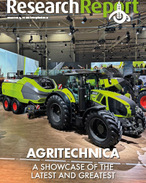This article is 2 years old. Images might not display.
MLA has granted $150,000 to AgriProve, based in Albury, New South Wales, to fund soil carbon producer demonstration sites to explore how sequestering carbon in soils can impact the carbon intensity of a livestock enterprise.
The $150,000 grant will support the Australian red meat industry's aim to transition to carbon neutral status by 2030.
Three AgriProve partnering producers at Tarramba, Queensland, Dungog, New South Wales, and Carrick in Tasmania will host demonstration sites to trial management practices that sequester carbon in soils.
The MLA project will include whole farm carbon accounting to determine the cost-benefit of soil carbon projects and highlight how soil carbon sequestration can support livestock enterprises in reaching and moving beyond carbon neutral status.
Case studies will share findings with MLA's national producer network plus, more than 900 producers who have expressed interest in soil carbon projects with AgriProve.
The demonstration sites will trial multi-species pastures and test two different management techniques against a control plot, including varying grazing recovery periods, sowing techniques, soil ameliorants and aeration to determine best practice management of multi-species for increasing soil carbon.
Monitoring will draw on AgriProve's scalable approach to soil carbon sampling which includes one metre soil cores alongside remote sensing satellite imagery, and Near Infrared Red spectroscopy.
Baseline sampling, initial monitoring and sowing of multi-species are currently underway, with the first field day to share project details with the broader community scheduled for September.
AgriProve managing director, Matthew Warnken, said: "The Australian red meat industry has set a target to be carbon neutral by 2030 (CN30). AgriProve is facilitating this transition through supporting livestock enterprises in better understanding and reducing the carbon intensity of their operations so they can improve soil health and grow both productivity and profitability in the short and long term."























